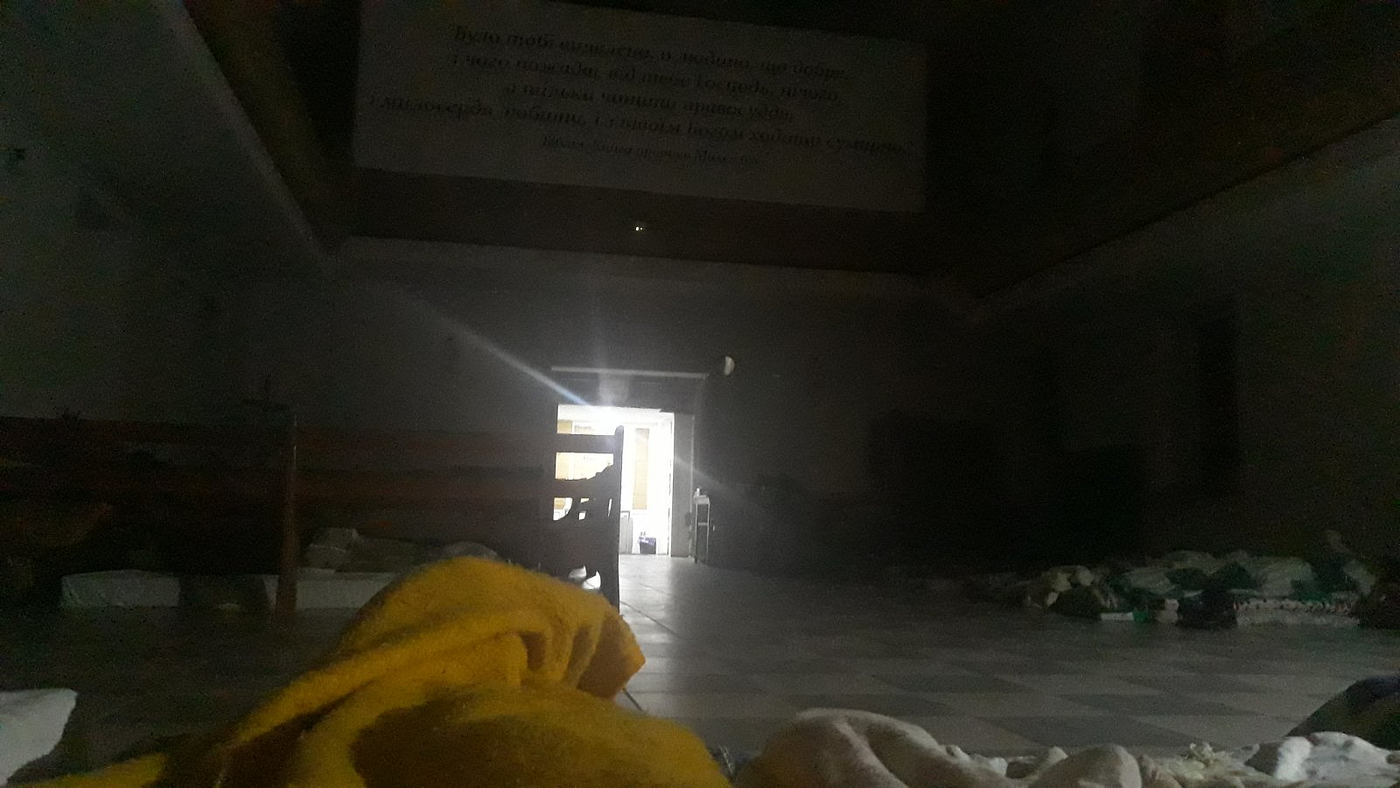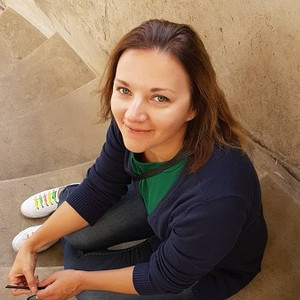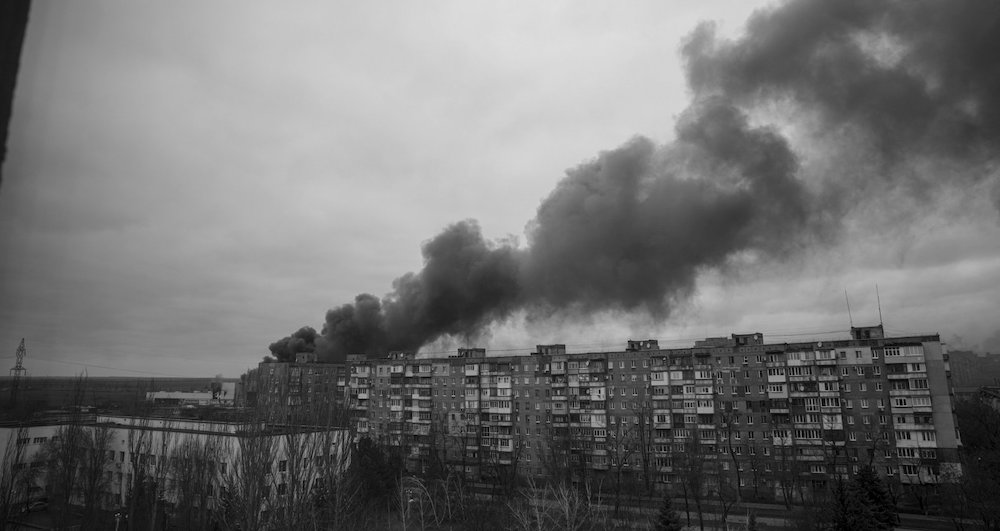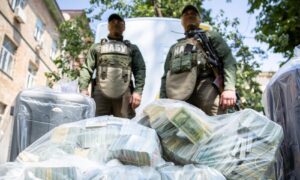My friend posted on Facebook a couple of days ago. She posted a photo of herself with her mom, in black and white.
And she wrote:
On February 24, the world lost its colours.
I read the post in my bedroom in Berlin, Germany. My mother-in-law slept in the guest room, my aunt slept in our home office AKA gym and my husband’s niece with her girlfriend on a sofa in our living room.
It wasn’t a family reunion. It was war.
My mother-in-law was the only one we got out two days before the war started. My husband was freaking out; he felt the danger and he tried hard to push her, to get her on a plane and fly her to us. She was resisting. No one believed that something like this would happen, not even after eight years of the hybrid war, the unacknowledged war. She only very reluctantly agreed after he told her that he already bought her a ticket.
“OK, good, I don’t want to waste your money,” she said. “I’ll just come and visit. But it’s all garbage. This won’t happen.”
She flew in the evening of February 22. She spent the night and the next day complaining about how my husband was paranoid and frightened her for no reason. She was grumpy.
On February 24, at 5 a.m., a small military airport not far from her hometown (and formerly our hometown, too) was bombed, together with four others. I woke up early and was scrolling the news. I woke my husband and said, “It started.”
On February 24, all flights to Ukraine were stopped.
My aunt wasn’t so lucky. She stayed in Kharkiv long enough to see and hear the bombs and the air raids. For several days during air alerts, she was hiding in a bomb shelter – in the block-of-flats cellar, dirty, barely having some electricity. Then the water pipes in the cellar burst, and there wasn’t even a bomb shelter to hide in anymore.
So, she started going from her apartment on the 4th floor to the neighbors on the 1st floor, because she thought it was safer closer to the ground. They cowered in the corridors, where there were no windows. After a week of this, the situation was becoming even worse. It wasn’t “just” Grads and Smerches and Uragans anymore. The planes started circling the city and dropping bombs.
That’s when my aunt realized she needed to get out.
But it was easier said than done.

What I discovered based on the experience of her and my other relatives is that evacuation and normal travel are two VERY different things. What took hours before now takes days. People spend a week travelling from the east to the west of Ukraine, because there are checkpoints and huge traffic jams or nowhere to fill up with gas on the road. There are fuel shortages. Cars stand in huge lines to get something, and then might get nothing because the Red Cross or some humanitarian aid train came in and took it all — obviously, they have priority.
There’re evacuation trains – a lot – but the demand is still 10 times more. So, people stand on the platform for 12, 16, 24 hours just to get into the train – and then they only have standing room or a seat on the bench holding twice more people than they normally do.
In addition, it’s COLD, it’s really cold in Ukraine in winter, so standing there for so long already makes one feel half dead. And then the train that should take 12 hours takes 18 because it stops during air raids and because (maybe?) some train tracks are already blown up. And then when they get to the west, exhausted, cold, hungry, thirsty and desperate, there’s no accommodation because everything is full. They sleep in schools and churches on the floor and consider themselves lucky to have some kind of roof over their heads.

Whoever decides to brave the border crossing has another 16-to-24-hour wait in sight – and then more delays and more looking for any available transportation and more connections and people packed into cars in numbers way over what safety rules allow.
And then they end up in a country the language of which they don’t know, with one suitcase and if they’re lucky – with their personal documents, homeless, jobless.
(Editor’s note: Pt. 2 of “How the world turned black and white” looks at the situation in Berlin for displaced Ukrainians. See more here about the situation in Ukraine.)

About the author:
Maryna Cherniavska is a software developer from Kharkiv, Ukraine who now lives in Berlin. She’s open to learning new things. In the past, that included computer languages such as Javascript, Node and React. In the present, she programs in Kotlin and Ruby. For many years, Maryna was a Java developer, and she writes a programming blog to share her knowledge. She also speaks at conferences, though being an introvert, writing comes more naturally. She says she’s not a professional writer but writing is something she likes, “and I think I can do it pretty well.”
Maryna is a software developer from Ukraine who now lives in Germany. Maryna also writes a programming blog to share her knowledge. She sometimes speaks at conferences, though being an introvert, writing comes more naturally. She says she’s not a professional writer but writing is something she likes, “and I think I can do it pretty well.”














